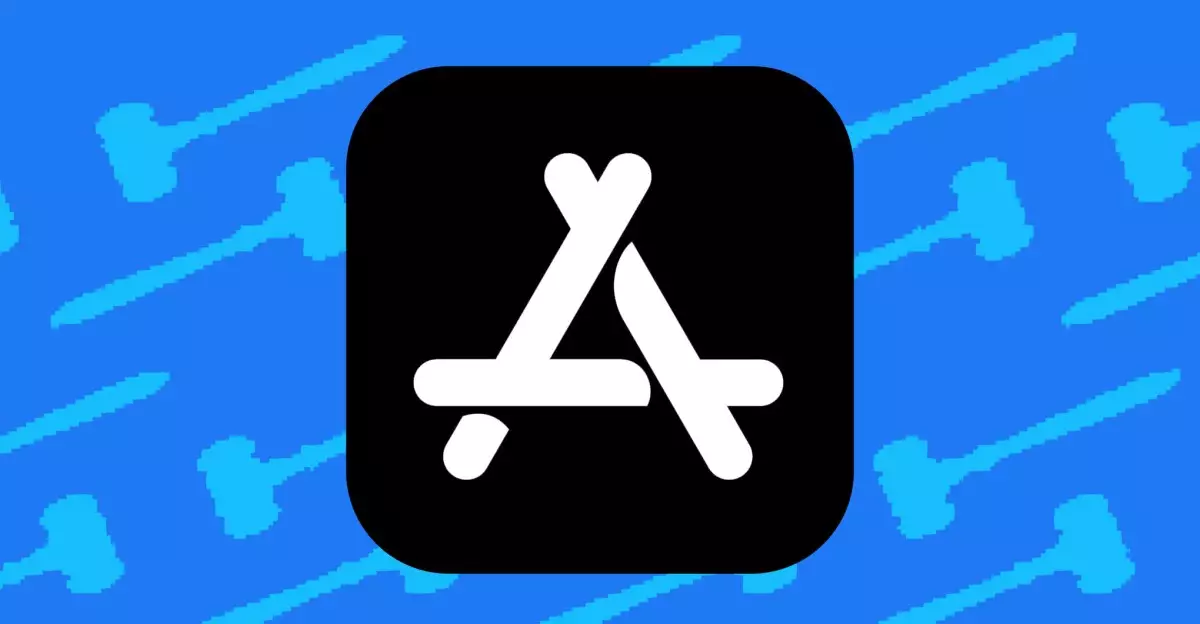The ongoing legal saga between Epic Games and Apple has become a focal point for discussions surrounding digital monopolies and fair trade practices in the tech industry. This is not merely a corporate tussle; it is a deeply rooted conflict that reflects the struggles developers face when dealing with major platforms. Epic Games, the creator of the immensely popular game Fortnite, has publicly challenged Apple’s App Store policies, calling attention to restrictive practices that many argue undermine competition and consumer choice. The collision course between these two technology giants has far-reaching implications for the broader tech ecosystem, and the stakes are only getting higher.
The Current State of Affairs
Recently, Epic has accused Apple of contempt regarding an April court ruling mandating the tech giant to honor a more lenient review process for apps that use external payment links. According to Epic’s court filings, Apple has stalled in its compliance, citing pending legal motions as a reason for not approving the latest version of Fortnite submitted by Epic. This new submission is not just any update; it’s a significant one that aligns with European Union regulations. However, Epic’s claim is that Apple’s delay is rooted in retaliatory tactics due to their ongoing legal disputes, casting a shadow on the integrity of the industry’s competitive landscape.
In a letter shared with the court, Apple stated that it would not act on Epic’s submission until the Ninth Circuit provided a ruling on their request for a stay on an injunction issued earlier. This has led to increasing tensions between the two companies, with Epic feeling caught in a web of conflicting legal strategies, while Apple appears to be leveraging its power to sideline its competitor amidst ongoing litigation.
The Legal Ramifications
One of the critical elements in this ongoing saga is the judicial perspective of District Judge Yvonne Gonzalez Rogers, who previously ruled in favor of some of Epic’s claims but did not fully side with them regarding the return of Fortnite to the App Store. The judge’s comments during the April ruling hinted at her growing annoyance with Apple’s legal maneuvering, suggesting that a shift could be on the horizon. If Judge Gonzalez Rogers were to find Apple in contempt again, it could set a formidable precedent that changes the terms of engagement between app developers and platform providers.
Epic’s plea is clear: they want the court to enforce the initial injunction and compel Apple to allow compliant apps like Fortnite to return to the iOS ecosystem. This battle over app compliance also brings to the forefront the question of what constitutes fair treatment in the app marketplace, particularly when one player has overwhelming influence over the distribution of digital content.
The Broader Implications for Developers
At its core, this conflict raises a vital discussion about the impact of app store policies on developers and users alike. For small and midsize developers, the landscape can feel punishingly skewed, where the dominant platform dictates not only distribution but also payment processing and revenue sharing. Epic’s legal challenge has sparked interest in reforming such practices, encouraging developers to question the status quo.
As Epic pursues this legal battle, they challenge not only the restrictions imposed by Apple but also the wider implications of corporate power on innovation and creativity. The struggle revolves around a fundamental ethos of digital equality: should a single company be allowed to dictate terms to developers without the risk of consequence? The outcome of this case could be a catalyst for industry-wide change, establishing norms that could level the playing field for developers in the future.
The Stakes of Contempt
As the court hearings continue, the stakes will be high for both sides. Epic Games is fighting for its survival in an ever-evolving digital landscape, while Apple is defending its business model that has accumulated tens of billions in profit. Each ruling, each legal maneuver adds pressure to a scenario that has implications far beyond the immediate conflict.
The eyes of the tech world are peeled to this dramatic legal showdown—a clash not only of high-profile companies and their interests but also a battle over principles that define the future of digital commerce and ingenuity. It will be fascinating to see how this conflict unfolds and what it could mean for the future of app development and distribution standards in an increasingly consolidated technological landscape.

